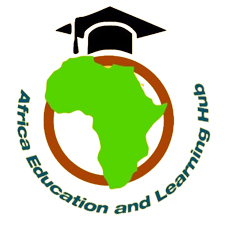NATIONAL BUDGET ANALYSIS PRIMARY AND SECONDARY EDUCATION
Date
2023-12Authors
ZIMBABWE NETWORK OF EARLY CHILDHOOD DEVELOPMENT ACTORS
EDUCATION COALITION OF ZIMBABWE
FARMING COMMUNITY EDUCATION TRUST
Type
OtherLanguage
enItem Usage Stats
691
views
views
599
downloads
downloads
Abstract
Zimbabwe is actively pursuing the global pursuit of Sustainable Development Goals (SDGs), focusing on Goal 4, which advocates for equitable and inclusive education for all. The realisation of this goal necessitates robust and sustainable financing for education, a commitment echoed by nations worldwide. Zimbabwe, as a signatory to the United Nations Convention on the Rights of the Child (UNCRC) and the African Charter on the Rights and Welfare of the Child (ACRWC), is firmly aligned with international agreements emphasising the right to education and the imperative for governments to progressively actualise education rights through adequate resourcing.
The Zimbabwean National Constitution, notably in Section 75, explicitly enshrines the right to education. It is a foundational document affirming the nation's commitment to providing accessible and quality education for its citizens. The Education Act, enacted in 2020, is a crucial instrument ensuring the alignment of educational practices with the constitutional mandate. This legislation contains progressive provisions, particularly emphasising addressing gender-related challenges in education, especially for girls.
The Education Act's provisions include the prohibition of expelling pregnant girls from school, a commitment to free and compulsory education, and the integration of sexual and reproductive health services into the educational framework. Section 3 explicitly mandates the state to ensure the provision of sanitary wear and other menstrual health facilities to girls in all schools, promoting menstrual health. Section 4 asserts the entitlement of every child to compulsory basic state-funded education, emphasising inclusivity. Furthermore, the Act introduces Section 68C, stipulating that no child shall be excluded from school based on pregnancy, a protective measure reinforcing educational access for pregnant learners. Section 15 addresses the crucial aspect of sexual abuse, underscoring the need for regulations to manage and prevent such cases within the school environment.
In parallel, Zimbabwe is implementing the National Development Strategy 1 (NDS 1), a strategic framework that establishes a robust foundation for the nation's human capital development as a key pillar. NDS 1 emphasises broadening access and participation in quality, equitable, and inclusive education, specifically focusing on marginalized populations in remote and overcrowded urban areas. This commitment aligns with the overarching goal of fostering comprehensive and accessible education, reflecting Zimbabwe's dedication to realising global education objectives and addressing local educational challenges.

